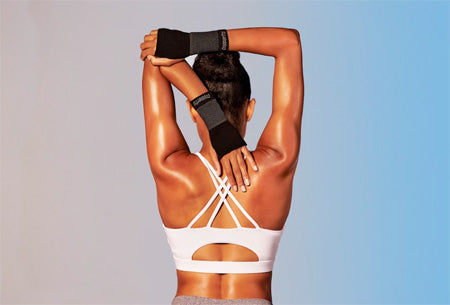
It’s coming! Ready for some more sunlight in your life? On March 13 at 2 a.m., we officially “spring forward.” Such great news! That means more light in the evenings- AKA we have more time to take walks after work, head to the park with the kids, or catch the sunset.
The downside? Getting our bodies to adjust. Just a one-hour difference can mean a lot in regards to sleep patterns. Most of us feel a bit sleep-depleted for the first 3-7 days as we adjust to getting to bed earlier and rising earlier. And the greatest challenge is to not just rely on caffeine - getting hopped up on coffee will just make you tired and irritable!
How can one hour affect us so much? Because we all have a circadian rhythm and changing it up isn’t easy on our bodies. According to Dr. Haissam Dahan, owner of the Ottawa TMJ & Sleep Apnea Clinic in Canada, “We all have a circadian rhythm that is essentially a 24-hour internal clock running in the background of our brain which cycles between sleepiness and alertness at regular intervals. It helps us know when to sleep and when we should wake up.” This internal circadian rhythm gets affected by daylight savings changes - and mood and sleep are linked for just about everyone.
But, don’t worry, there are things you can do to make the transition smoother, and we’ve rounded up ten tips to get you to the other side of “springing forward” without totally hitting a wall!

Ten things you can do to survive when clocks spring forward:
- Reset your sleep clock: Most people should shoot for 7-8 hours of sleep, although some lucky ones need about 6! Know your body, and prioritize your sleep. Set a bedtime and STICK TO IT! It’s especially important the first week of Daylight Savings Time (DST). Avoid sleep disruptors like too much caffeine or alcohol - the two biggest sleep stealers!
- Reset your REAL clock: Set your clock on Saturday, March 12, the night before DST, before you go to bed. You’re going to be tempted the next day to say, “Well, it’s 10 pm, and I should go to bed, but it’s really only 9” - nope! Stick to the new time and your new schedule, and it will help you adjust faster.
- Early Bird Special! Eat a little earlier than usual the first week, and this will help trick your body into adjusting to the new time because digesting earlier will help your body start getting ready for sleep earlier. We all know it’s hard to sleep well on a full stomach! It’s generally recommended to have your last meal at least 3 hours before bedtime.
- Catnaps: These are good when you readjust to a new schedule, but it’s essential to know how to take the perfect midday nap that won’t affect your sleep at night. The ideal amount of time for a power nap is just 10-20 minutes -you’ll get the benefits of recovery and feel refreshed but won’t be overly sleepy and groggy after. And - you don’t disrupt your nighttime sleep cycle.Not only will you reduce sleepiness, but naps are also great mood regulators and help with improved memory and learning. Pretty much, naps rule!
- Night Owls start early: If you like to stay up late and catch up on Bravo in a quiet house, the switch in spring is rough for you. At the beginning of DST, you will find yourself staying up even later than usual and being completely zonked the next day. So try this: a few days before the time change, try going to bed just 15 minutes early each night. It will help set you up for bedtime success!
- Get cozy and set the sleep mood with sleep-inducing foods: If you want a light snack, reach for some sleepy-time foods. A warm cup of decaffeinated chamomile tea triggers your body to settle and contains apigenin. This antioxidant binds to specific receptors in your brain to promote sleepiness and reduce insomnia. Almonds are a source of melatonin and magnesium, both helpful for a good night’s sleep—more snack options with sleep-inducing properties: a glass of milk and bananas.
- Let the light in! Sunlight in the morning is important to get your body on the new ‘spring forward’ schedule. Leave your blinds slightly open when you get to bed, and let the sunlight gently wake you. Then, start your day with a walk outside. Not only does it help you wake up if you are feeling groggy, but a walk also lowers your blood pressure and improves heart health over time - and helps your overall circulation. Put on your Copper Fit Energy Compression Socks for better circulation throughout the day to help reduce swelling, increase circulation, and improve overall comfort all day.
- Move your body - Exercise for the win! Exercise is especially important in the first couple of weeks when your body adjusts to a new sleep cycle. Exercise increases your neurotransmitters which pumps up your endorphins - the feel-good chemicals that boost your mood. This all helps you avoid SAD - or Seasonal Affective Disorder. Don’t let back pain stop you. Gentle support from Copper Fit Advanced Back Pro provides compression and support that allows full range of motion while supporting the lower back, whether you are gardening or hitting the tennis court. Easily adjusted support that is easy on, easy off helps you move during the day to sleep better at night.
- Open a book, put down the phone: We know you know this one - It’s especially important to stay off screens 2-3 hours before bedtime when your body is adjusting. Electronics high-intensity light stimulates your brain and hinders melatonin, a hormone that triggers sleepiness. Create a nighttime ritual 1-2 hours before bed to tell your body it’s time to get into sleepy mode - pour a cup of herbal tea, put on your coziest socks like Copper Fit Energy Ankle Socks - a 3 Pack or 6 Pack for greater savings - and dive into a good book. It will soon become your favorite part of the day!
- Create a sleep sanctuary: Make your bedroom conducive to a great night’s sleep. Get some black-out shades or panels, treat yourself to clean, soft sheets, and get a noise machine to block out sleep-disrupting noises. Stow your phone in the other room, and maybe try some gentle yoga stretches before bed.
Copper Fit Tip: Make sure your room is a cool 60-67 degrees - the optimal temp range for a great night’s sleep!
The best news about daylight savings time: It means spring is coming, and with that comes so many good things! More sunlight, warmer weather, and flowers in bloom. Set yourself up for a smooth transition, and enjoy the new season!





